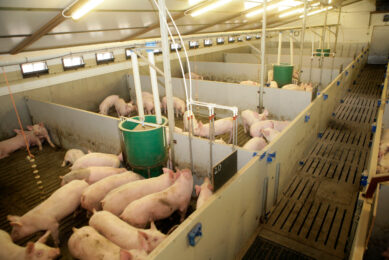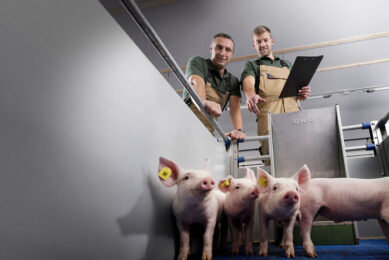Attracting good pig technicians

Before I start, note my use of ‘pig technician’ for ‘stockperson’. This cachet gives the worker more status in the community, boosts his/her morale – and technicians is exactly what they are in this increasing technical job.
Another thing before we start: These days many job applications go through the Internet, with LinkedIn being used frequently so people can be hired without a single piece of paper being printed. For the essentials inside the pig house, of course this doesn’t make a difference.
I digress: Now to business.
What can pig farmers learn from industrial recruitment
Invited by an ex-colleague of mine to be allowed to sit in on a recruitment training seminar for personnel managers of one of our largest industrial firms with many factories, naturally I jumped at the chance. At the end of the day, emerging deep in thought, I realised that there should be absolutely no difference between the recruitment strategies of the leading firms in industry and commerce, and a farm business. We in pigs are unlikely to beat them at their job, “They seem to get the best people locally anyway,” is a common enough comment. But we can learn from them.
John Gadd: “People make or break businesses.”
Attracting the right applicant
First message was that ‘people make or break businesses’. No need to remind us of that, naturally, but selecting the best candidate from a full list of applicants is vital. So how might we get a good number of applicants? Factors affecting the number of applicants are:
- Number of people in the local labour market and the degree of competition for them. Study the local demographics and plan your approach to them – you may have to recruit ‘out of county’.
- The appeal of the job. This is entirely up to you. If the farm, its location and the job itself have attractions, then make them crystal clear. Shout them out loud; be enthusiastic. Claim that caring for animals is a very satisfying job compared to many in industry. Pigs are attractive animals, almost human-like in their character and when cared-for well (use the words care/caring twice in the advert and you will attract more of the right sort of person) then this can bring great job satisfaction.
- Scope for job flexibility. No-one any good wants to be stuck in a round hole for months on end – as many are in industry. There are many jobs to do on a pig farm and different skills to learn with plenty of encouragement and hands-on training. In this respect we can seem better than industry.
- Prospects for training and promotion. The skilled apprentice idea is proving a winner in other industries, so think about this – there are employment advisers who can guide you. Attitudinal surveys, which I will describe in a future piece, are revealing that status is an increasingly important motivator for manual workers (‘pig technician’, remember!).
- Wages largely depend on local competition. We pay our pig stockpersons too little in respect of the amount of your capital locked into their responsibility under their control. A few examples I compared to the sums I brought away with me from the seminar suggest that even our humble pig technician at the bottom of the ladder actually carries much more of the firm’s capital than his industrial counterpart!
- Anyway, I am beginning to realise that paying what approaches industrial wage levels might only raise the cost of producing a finished pig by 3%. (‘People make or break businesses’, remember!). Say that you reward success but be prepared to say how if you are asked at interview. Think of bonuses, extra time off, family benefits, free pork etc..
Selecting the best pig technician
The best pig technician for your circumstances, that is. Much time was spent on the vital importance of the job application. A closing arrival date must be stated on the advert (on- or offline) as people are slow in sending them in and a review of job applications must be completed well before the interview itself.
You need time to study and compare the responses to the matrix suggested below which will soon reveal the obvious rejects. For the possibles use a tentative scoring system based on your own requirements which can be added to a similar one on a prepared sheet after the interview (never during it) to compile a shortlist for reconsideration, or re-interview if needed. The job application form scoring also helps you ask the right questions at interview. The personnel speakers at the seminar all stressed the need to allow sufficient time to consider the job application replies, as many employers never do.
Suggested job application criteria
- Name, age, sex, and personal details;
- Standard of education and qualifications, if any;
- Previous employment details (past five years);
- Reasons for leaving present job;
- Experience with pigs/animals;
- Degree of knowledge/skills/experience;
- Details of current and past health;
- Names of two referees;
- Other information you need. Family, schooling, accommodation, transport etc.
Important: In case you ask potential staff to send in a written application form, limit the total length of replies to 300 words maximum. Say the any applications exceeding this total wordage will not be considered. This discipline helps to sort out the more acceptable candidates – and will not overload you with work!
This article was featured in Pig Progress magazine no. 8, 2014 – to read more published article see Pig Progress digitial
To read more Columns from John Gadd











